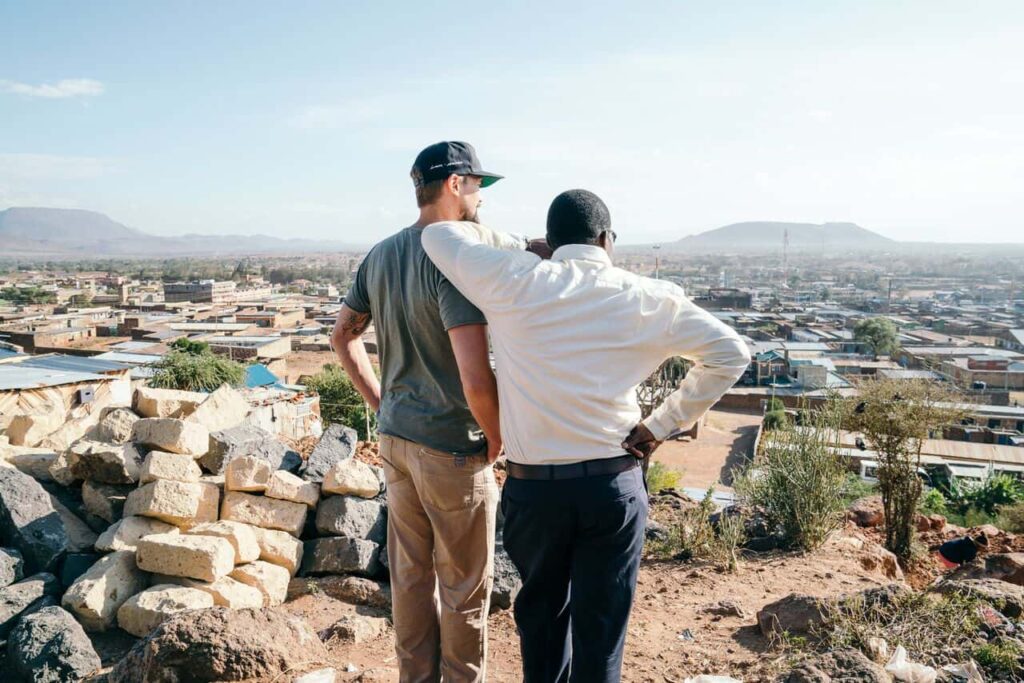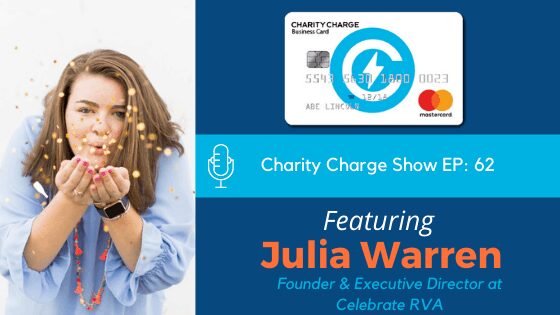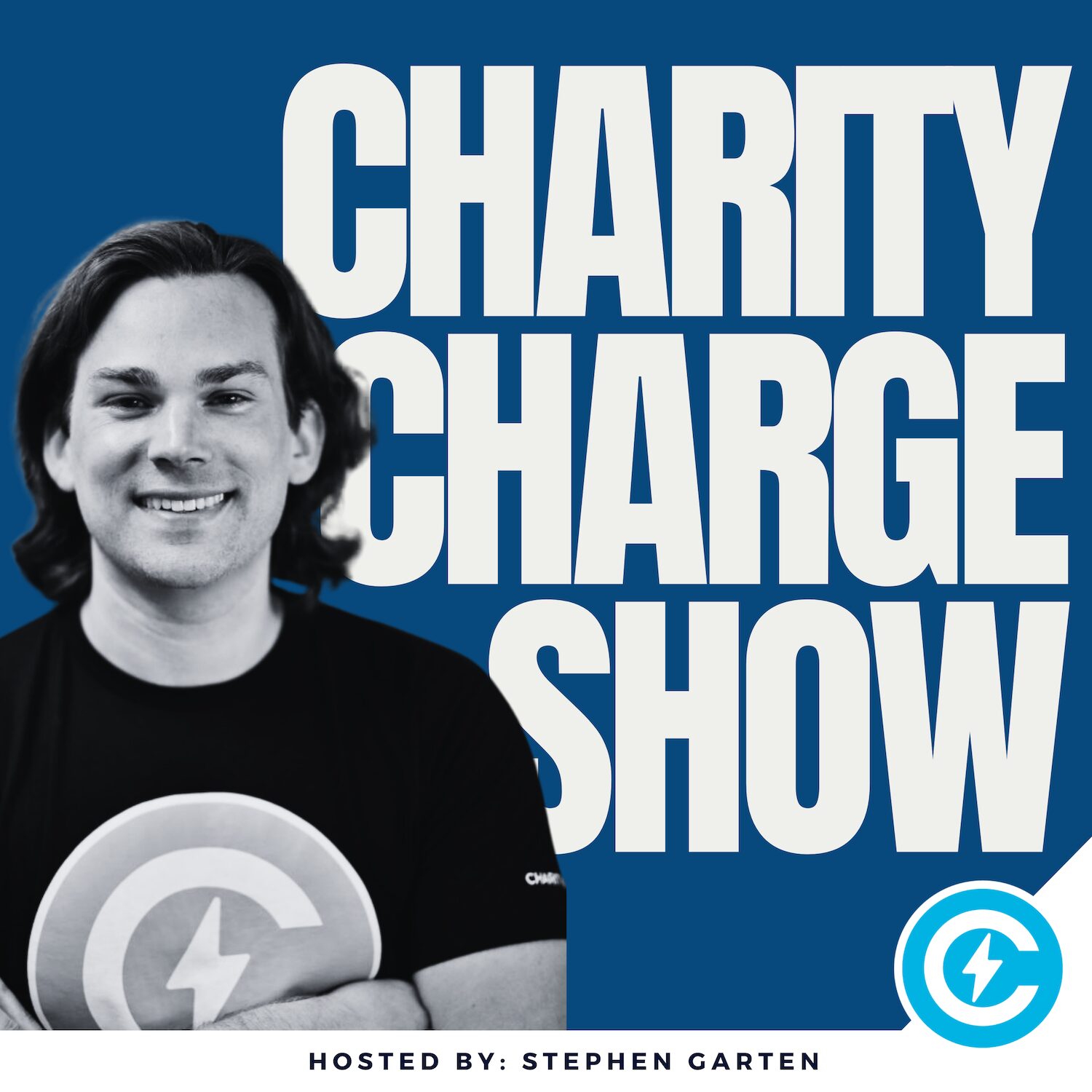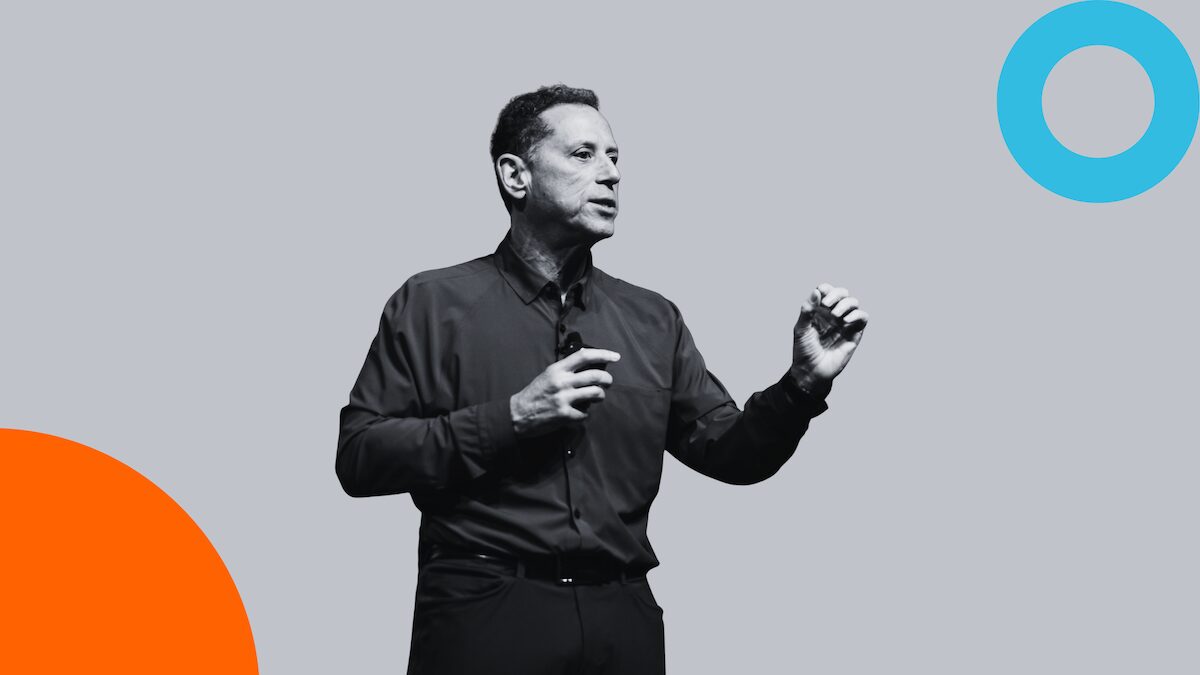In episode 40 of The Charity Charge Show, Stephen Garten chats with John Eyth, Chief Financial Officer at Arc Human Services.
John has been associated with Arc Human Services/Arc of Washington County since 2018, serving as Chief Financial Officer. He has worked for almost 25 years as a Controller and Chief Financial Officer in both for-profit and nonprofit organizations. For the past 11 years, John has worked as a Chief Financial Officer for several providers of Intellectual Disabilities Services. He received a Business Administration Degree in Accounting from the University of Mary Hardin Baylor. He is a Certified Public Accountant (CPA) with the Texas State Board of Public Accountancy. He is also a Certified Management Accountant (CMA) and Certified Financial Manager (CFM).
Can you tell us a bit about your background in the finance industry?
Sure. Actually, I started as a staff accountant right out of college working for a nonprofit and then went into for-profit accounting for many, many years. I worked as a senior accountant, a financial analyst, and then moved into the role of controller. I was in that position for several years until I got into a CFO role. So I’ve had experience in both for-profit and nonprofit accounting, which really gives you a broad perspective of what’s out there to have the ability to to take best practices and apply them wherever you’re working.
What is one of the most important accounting principles you’ve learned throughout your roles?
One of the things that is extremely important as everyone knows, especially now in the situation we’re in, is monitoring cash flow. And that’s something that from the beginning of my career through current day, that’s still a very critical aspect of the whole accounting and financial function. So one of the things that I was able to get implemented early on was daily cash flow analysis, a bank account analysis to know where you’re at at every point in time as far as your cash reserve.
How have you had to adapt to the virtual work environment?
One of the things that has really benefited us is the infrastructure we have in place. So we still have utilities, we still have internet service, and things like that. Being able to leverage your technology to continue business is vital. That was something that I believe a lot of industries and a lot of nonprofits had been looking at. Thankfully we were able to get a large grant about two and a half years ago, leading to five separate strategic initiatives pertaining to technology advancement that we were able to get implemented. And it’s paying significant dividends now because we’re able to do many of the day to day kinds of things remotely in lieu of having to be in person. And I believe that as companies continue looking at their contingency plans and things like that, it’s very critical to be able to keep your organization up and running and communicating with your team in a very timely way. So that has paid significant dividends. But just being able to function on a day to day basis from a remote location can be a challenge. Thankfully we have systems in place that we’re able to leverage that we’re able to basically do business as usual.
What virtual systems or programs have you been using?
We actually have an electronic purchase order system that we can utilize throughout the organization. So we group homes throughout Western Pennsylvania and some of the homes are a hundred miles from headquarters. And so folks are able to actually submit purchase order requests, electronically get them approved virtually, immediately and keep that process going. We also have an electronic expense reimbursement system, so we’re able to get folks their expenses reimbursed two times a month. We are able to import that into our payroll system and are able to actually pay them as a reimbursement on their paychecks. We have had electronic direct pay for several years, but that’s really paying dividends now, so you don’t have to worry about getting physical checks into people’s hands. We also have an online training program that we use for staff. So they’re able to during this time frame where they’re practicing their social distancing and being indoors, able to utilize that for training time and get training accomplished through our web application.
We also have an electronic onboarding system for new staff as we’re still hiring staff through this process because we have to take care of folks 24/7. And so that system has worked really, really well from the standpoint of using texting technology, online applications, and remote interviewing kinds of systems. So that has really paid dividends significantly. We also have an online performance management system that we’re utilizing. When it comes to the practical aspect of actually purchasing food and supplies. We’ve rolled out the credit card program across the company, so every location has a credit card that they can utilize to keep the supplies and food purchases going. So those are the particular components of our technology we’ve been able to incorporate and it’s really working well over these last couple of weeks.
Why is conserving cash flow during down times so important in your opinion?
Well, cashflow, if you can use the trite saying, cash is king, is absolutely true. When it comes to running your organization, you have to be able to have enough liquid assets to pay your expenses, pay your staff, and still be able to perform your mission. So in order to accomplish your mission, you have to have the funds.. In most nonprofits, I would venture to say their largest expenditure is staffing the payroll and the benefits. So in order to keep your staff engaged, you have to have the cash flow. In times like this, it’s very critical that you monitor your cash and you look for ways possibly to stretch your cash out. Just to go into a couple of practical things about cash flow and in ways you can streamline your processes…
First thing you know, because cash is a liquid asset, it’s most susceptible to fraud. So you want to make sure that your internal controls are in place. And I know that it’s difficult for some nonprofits to segregate duties, because of their size, but you never want to have one individual actually collecting cash or checks, depositing those checks, recording those checks, signing checks, and doing the bank reconciliation. If possible, you want to separate as many of those activities as you can, even if it’s just pulling out the bank reconciliation for a different person. That really needs to happen, because unfortunately many nonprofits experience embezzlement and fraud just by not having the internal controls in place. So even in this time where we’re all wondering what the next day holds, the thing is not to panic, but to have systems in place that allow you to control your cash.
With that said, I know that cash flow is probably slowing down for some nonprofits depending on the service they’re providing. So practical ways to slow down your cash flow that I would recommend would be contacting vendors or if you have a lease or rental to just talk about extending terms for payment. That’s a very quick, practical way that you can stretch your cash flow from the standpoint of focusing on the critical items that need paid for. So the first thing I would do is contact your vendors for expenditures you’ve already made and talk about extending terms just due to the circumstances. Most vendors are understanding and reasonable and can work something out with you and may possibly waive late fees. That’s something that I would encourage people to pursue quickly just so they can keep the cash for critical components of their operation.
The other piece to that is for discretionary expenditures you might have that, that you can hold off purchasing or expending or travel, anything like that. If you can defer those at this point, that’s one thing you will want to do to conserve cash. So the goal here is conserving cash the best that you can. Depending on the situation of a nonprofit it’s nice to have 60 days of cash in the bank that you can then utilize. If you take all of your expenditures and you average what your daily expenditures are, that’s where the 60 days would come in. So 60 days of cash to cover expenditures. If you’re able to extend those days by talking with your vendors or deferring some of your expenses, that’s all the better. If you are a smaller nonprofit but you have a credit card you can utilize the credit card, and depending on the timing of purchases or the credit card, you know, you can extend your credit even an additional 20 or 25 days that way. So there’s a few practical things you can do to conserve your cash during these uncertain times.
What are some of the different certifications and courses you’ve done in the past that others in the nonprofit sector may want to take advantage of?
Well, because we live in an ever changing world, especially with technology and regulations, things are in a constant state of change. Part of the professional competence that you want to maintain and enhance is continuing your education on pertinent items critical to nonprofit industry finance. I have several different certifications and have actually mandated requirements for continuing education as I have always utilized those classes to enhance my skills in pertinent areas that are going to impact my personal development and favorably influence the organization. So because we live in a competitive world and because things are changing so quickly, it behooves us all to be lifetime learners. We want to keep our skill sets active, honed, and ready to face the uncertainty. The more tools we have in our tool belt, the more opportunities we have to be able to strategically make the right decisions for our organization.
There is an organization, actually, in Austin, Texas that has a course called Certification for Fraud Examiners. It’s a four part examination that goes through the different components of fraud and how to address it, how to recognize it, and how to mitigate or minimize it. In my career I’ve actually had to deal with a few frauds. And due to the background I have, I thought that it would enhance my professional development and career to be able to have this specific certification that I can utilize and leverage with my other experience to help not only my organization, but maybe others that could be experiencing some issues around fraud.
Could you give some practical examples of fraud that you’ve experienced first hand?
I actually worked, at one time, for a for-profit organization that had convenience stores and as part of our product available to the public, sold money orders. In this particular location on average we would sell about $300 a month in money orders and one month it skyrocketed to like $30,000. So obviously it was a big red flag and we went out and actually talked to the store manager who kind of deflected our questioning. I just had to wait until we got the actual canceled money orders back from the vendor. Unfortunately, what happened was the store manager was taking cash out of the cash register and replacing it with the money order that was written to the company. So basically she was stealing cash and replacing it with a money order that the company was paying for. In about six weeks, she had stolen $40,000. We filed a criminal charge with our insurance company, but unfortunately when someone is doing that, they really don’t have the capacity to repay. So that was a hard lesson to learn, but one that lets you know that if you’ve got internal controls in place like account reconciliations, you can catch fraud hopefully quickly enough to mitigate some of the possible damages.
What role does your board play in managing the finances for the organization?
What we do as part of our board meeting process is present the financial statements for the organization, like financial ratios and metrics. We want to keep them apprised of where we’re at, making sure that the organization is financially healthy. We actually interact with them pertaining to capital purchases, vehicles, and building purchases, things like that. So they are monitoring us from a more of a global perspective. We handled the day to day things from the management team, but we present them the information to ensure that they’re handling their governance role taking on fiduciary responsibility for the health and wellbeing of the organization.
How does that process work for smaller organizations?
Many times smaller nonprofits will pick board members based on the friendship with the CEO or family members which is okay, but many times you want to look outside that scope and pull in people with expertise in certain areas. Getting a financial expert on your board is a very key piece as they understand the finances, the audits, and are able to give sound financial advice to the management team. It also is helpful to have someone that has legal experience as well as just general business experience. You want to be able to build a board that is able to give sound counsel to the management team as far as the day to day operation goes.
Could you share a bit about the organization overall and how individuals can get involved?
Sure. ARC Human Services provides services to folks with intellectual and mental health disabilities. Currently, we have 81 community homes around Western Pennsylvania and also do day habilitation and in home services. If you’ve heard of the National ARC, we actually have chapters in every County in Pennsylvania and ours is actually in Washington County. So we’re always looking for opportunities for people that want to contribute or volunteer, folks that are passionate about taking care of people that need our help. And, that’s the wonderful thing about our mission. Our goal is to make other people’s lives better. So day to day, it’s a wonderful thing to be able to impact someone’s life in a positive way.
















